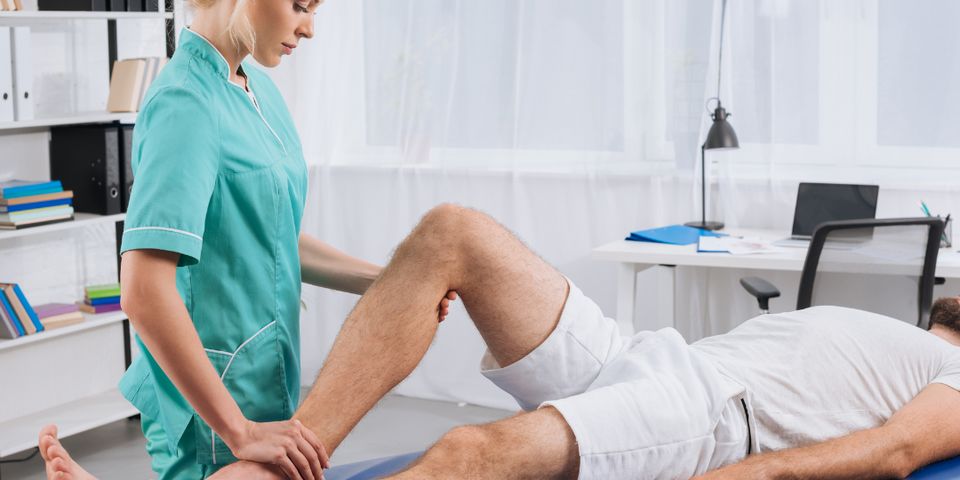
Chronic pain affects millions of Americans each year, with joint pain being one of the most common types. Given the amount of strain people place on their knees, this joint is heavily affected. Many people cope with their knee pain by using a cane or undergoing physical therapy. Understanding the approach that's right for you is an essential step on the path to a better quality of life.
Using a Cane
While many with knee pain will rely on a cane for help with stability and to take pressure off of the knee itself, there are some downsides to this. Using a cane, though, may lead to pain elsewhere, such as in the shoulders or back, as they will be taking on more of the burden of the body's weight. It can also lead to anxiety as you may fear falling more as you use it, carpal tunnel syndrome from adding stress to your hand while it maneuvers the cane, or increased clumsiness as you learn to balance while using it.

Addressing the root cause of the discomfort and learning proper management techniques will often provide a more long-lasting solution to chronic knee pain.
Treating Pain
Acute pain, which occurs after injuries or illness, occurs suddenly or as a result of something. It will usually go away as you heal. Acute pain is most often treated with over-the-counter pain medications, physical therapy, or a combination of the two.
Chronic pain, however, lasts longer than three months. Doctors usually address the treatment of the pain in a few different ways.
First, they work to discover the root cause. This is because the pain from an injury will be treated differently than pain from arthritis, for example.
Next, they create care plans that help patients cope with and manage their symptoms and provide treatment. This plan can help give a patient guidance on what kind of results to expect and the kind of timeline that they will be on for treatment. Patients should contribute to planning by setting manageable goals and tracking their progress.
Finally, chronic pain management often involves a mix of physical therapy, massage, anti-inflammatory medication, and rehabilitation practices. Discuss with your doctor what options you are comfortable with and how you will work together to use these treatment tools to reach your pain management goals.
Addressing chronic pain is an important first step to building a better quality of life. Turn to Advance Pain Management in Atlanta, GA, for help. Their professional and caring staff offer a wide range of services, including physical therapy, regenerative medicine, massage therapy, and diagnostic testing. To schedule an appointment, call them at (404) 781-2800. You can also learn more about their pain management services by visiting them online.
About the Business
Have a question? Ask the experts!
Send your question

